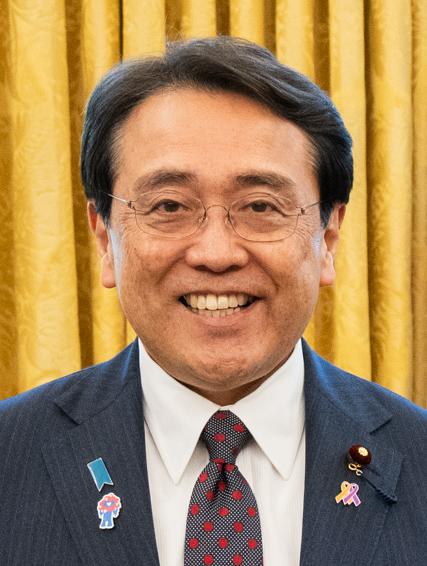Japan’s Deputy Prime Minister and Finance Minister Shunichi Akazawa announced on Thursday that the government is still coordinating efforts to finalize a date for the next round of trade talks. Speaking to reporters, Akazawa emphasized ongoing discussions with key international partners, underscoring Japan’s commitment to advancing trade negotiations amid a complex global economic environment. Further details on the schedule and agenda are expected to be released once arrangements are confirmed.
Japan’s Akazawa Emphasizes Ongoing Efforts to Schedule Next Trade Discussions
Japan’s trade representative, Akazawa, highlighted the nation’s ongoing commitment to finalizing a date for the next round of bilateral trade discussions. Despite the complexities involved, efforts persist amid shifting global economic dynamics and mounting pressure from multiple stakeholders to reach timely agreements. Akazawa underscored that establishing a definitive schedule remains a top priority for Tokyo, reflecting the strategic importance of these negotiations in enhancing trade cooperation and addressing emerging barriers.
Key challenges influencing the scheduling include:
- Unresolved technical issues related to tariff adjustments
- Coordinating availability among participating nations’ delegations
- Adapting negotiation agendas to evolving market conditions
| Negotiation Aspect | Status |
|---|---|
| Tariff Discussions | Ongoing |
| Non-Tariff Barriers | Under Review |
| Meeting Date | To Be Confirmed |
Challenges and Strategic Considerations Shaping Japan’s Trade Talk Timetable
Negotiations for Japan’s next trade talks remain in a state of flux, as officials grapple with a complex array of economic and geopolitical variables. Among the primary obstacles are fluctuating global supply chains, amid ongoing disruptions tied to semiconductor shortages and shipping delays. Additionally, Japan faces mounting pressure to balance its economic partnerships between Western allies and its important regional neighbors, particularly China and South Korea, where political sensitivities complicate the deliberations. The government’s cautious approach highlights an acute awareness of both domestic stakeholders’ concerns and the need to maintain strategic flexibility in an unpredictable international landscape.
Several strategic considerations currently shape the timing decisions: alignment with multilateral forums, domestic political cycles, and the broader trade policy agenda all play pivotal roles. The government is also weighing the potential impact on sectors deemed critical to Japan’s economic resilience, such as automotive, electronics, and agriculture. Below is a snapshot of key factors influencing the timetable, reflecting the balancing act Japan must perform:
| Key Consideration | Impact | |
|---|---|---|
| Global Supply Chain Stability | Delays and shortages slow negotiation progress | |
| Geopolitical Tensions | Requires sensitive diplomatic balancing | |
| Domestic Economic Priorities | Protecting key industries during talks | |
| Coordination with Global Forums | Avoiding conflicts with major summits |
| Action | Objective | Expected Benefit |
|---|---|---|
| Stakeholder Roundtables | Information Sharing | Build Consensus |
| Policy Monitoring | Trend Analysis | Early Risk Detection |
| Sector Impact Studies | Targeted Preparation | Informed Negotiations |
The Conclusion
As negotiations continue, Japan’s government remains cautious about setting a definitive date for the next round of trade talks. Observers will be watching closely to see how discussions unfold, with potential implications for regional economic relations and global markets. Bloomberg will provide updates as further details emerge.




